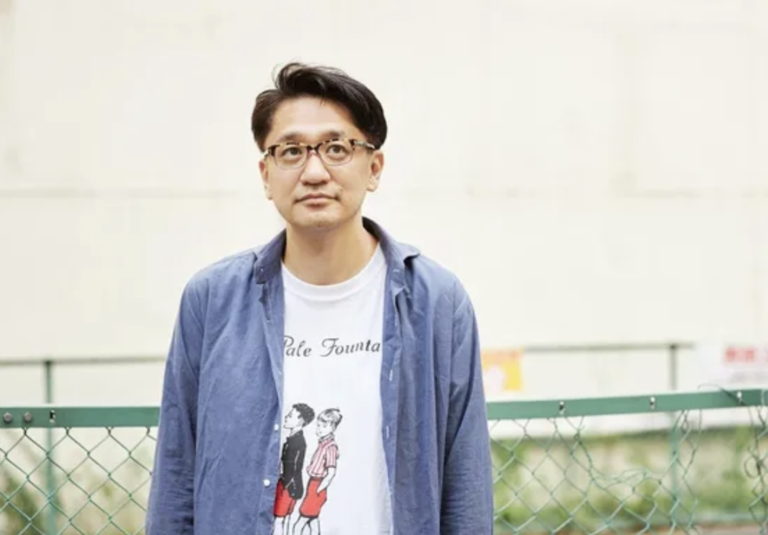
©Courtesy of Kino Films
Penalty Loop : When his girlfriend was murdered, part of Jun’s soul died with her. Since then, his only thought has been to take justice into his own hands. Having tracked down the murderer, Mizoguchi, and prepared a meticulous plan to achieve his aims discreetly, the time has come to take action. Jun slips in among his target’s colleagues, spices his coffee with poison and finishes him off out of sight. The perfect crime. The problem is that the next morning, he’s plagued by a feeling of déjà-vu. Worse still, Mizoguchi is back at work as if nothing had happened. Jun resumes his Machiavellian plan, but something goes wrong as his target seems far more suspicious than the day before. He succeeds, but in a much more muddled and imprecise fashion. When the routine is repeated yet again, Jun has to face up to the fact that he is trapped in a hellish time loop in which every day, he will have to kill Mizoguchi, who is also well aware of the situation he finds himself in, and is becoming increasingly difficult to kill.
It would be a big mistake to reduce this gripping black-comedy thriller to its simple time-loop concept, because PENALTY LOOP is full of stunning twists and turns, and ingenious ideas that border on the fantastic, to keep its audience on the edge of their seats throughout. Inspired by a real series of murders during the pandemic, director and screenwriter Shinji Araki (THE TOWN OF HEADCOUNTS) uses his unflinching storytelling style to offer a deep reflection on the notion of justice, grafting on a host of purely enjoyable moments, all with impeccable direction and mindblowing visuals. The complicity between actors Ryuya Wakaba (ICHIKO) and Yusuke Iseya (FLY ME TO THE SAITAMA) is palpable, helping to develop an engaging relationship between the film’s protagonists. With this second work that is as entertaining as it is innovative, we’ll be keeping a close eye on auteur Shinji Araki. – Translation: Rupert Bottenberg
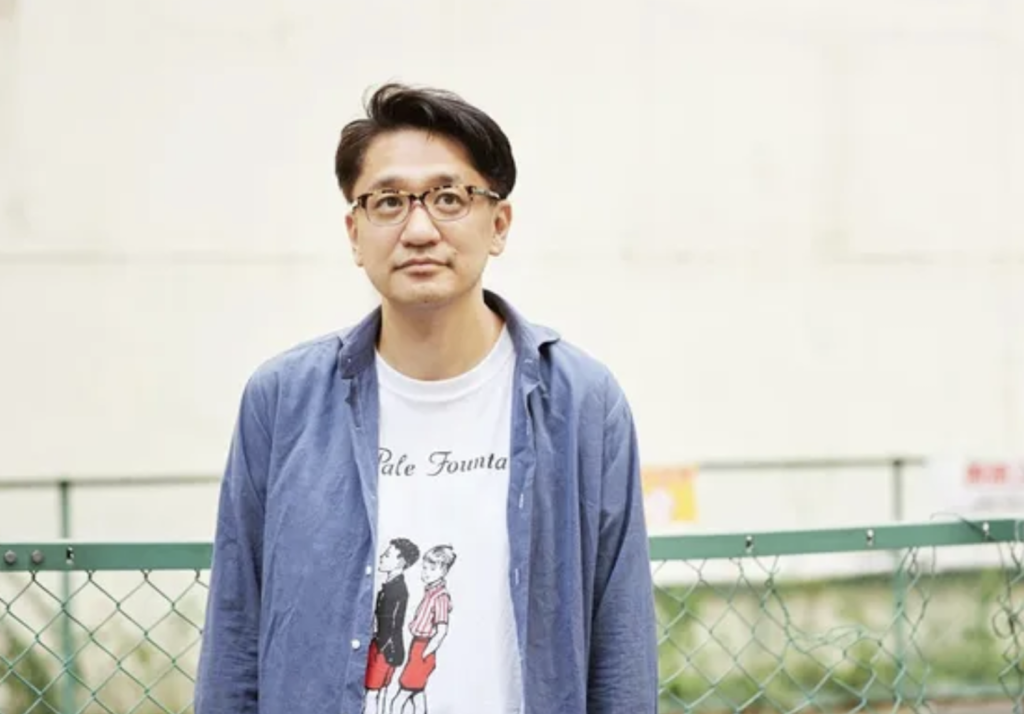 Photo Credit Aya Kawachi
Photo Credit Aya Kawachi
Q : I heard that you made a debut film when you were 50 years old. What inspired you to become a filmmaker at that age?
Shinji Araki: So I was a really lazy person, I had to wait until I was 50 to realize that I wanted to make movies after all(LOL), even though none of it interested me before.
Q : Just out of curiosity, what kind of occupation were you doing previously, prior to your becoming a director.
Shinji Araki : I was working in advertising. I was more of a creative director working with commercial fields.
Q : I heard that you had submitted your script to various scenario competitions and awards. How often were you writing scripts back then?
Shinji Araki: You might remember that in 2011, we had a very big natural disaster in Japan that killed many people. And six months after that, my father passed away from an illness.
I was really wondering what was left for me, and I thought that it was nothing actually. Until I realized that what I really wanted to do was make a movie and that if I didn’t do it soon, then my life would be wasted I went to a scenario school and I was laying scenarios, like new ones every month or so, working like I was living under a constant deadline, I wanted to showcase them publicly And I did that for a whole year, and that allowed me to make some money off of it.
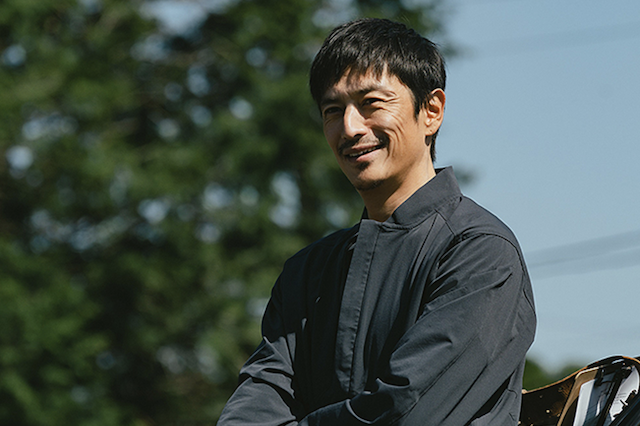
©Courtesy of Kino Films
Q : What was interesting about this film is that the time loop is such a typical conventional concept, but you’ve twisted this idea by never following any similar concepts. How did you come up with this concept and what was the inspiration you drew it from?
Shinji Araki: When somebody around you dies, or when your loved one dies, there’s a word for it in Japanese: adauchi, like when you take revenge on them. I think it’s natural that everybody has a desire for revenge in these times. And you know how in Japan we have the death penalty? So ever since I was very young, I was wondering if one of my loved ones was killed and the country killed the [murderer] for me. would that actually heal my trauma? Would I be satisfied?
And that led me to think, ‘Oh, how about if I did it myself?’ Would one time be enough for me to be satisfied? And that led me to this really dark spiral. People are really conflicted on it. Some people say that killers should be killed as well because that’s what they deserve.
And others say no, they should rot in prison. People have really complicated feelings about it and I wanted to portray that. That’s something that I think people should express more, and I think that movies are just perfect for it. I came up with, like, how about a loop? What if I was able to kill the person inside a loop? And that gave me the first idea for this movie.
Q : I’m curious that once the script was initially completed there’s obviously things that you can shoot with a budget or concept. And there are things that you cannot shoot within that budget. So what kind of conversation did you have with your producer about what you finally could bring onto the screen?
Shinji Araki: So for my first movie, there was a really crucial scene about a killing that I absolutely wanted to film. But the producer told me that there would be no time and no budget for it. so it was to be scrapped. I was really disappointed at that. That was a conclusion that was thrown at me. There was not much that I could do about it. And I was devastated. So for my second movie, I actually decided to develop it more in collaboration with the producer, asking ‘how can we make this interesting?’
How can we make it possible at the same time? It took around 10 meetings with me, the director and the assistant–the three of us. I thought that it made more sense to do it that way because we could figure out what would be possible. So I think that’s how I figured that it was what worked best for me.
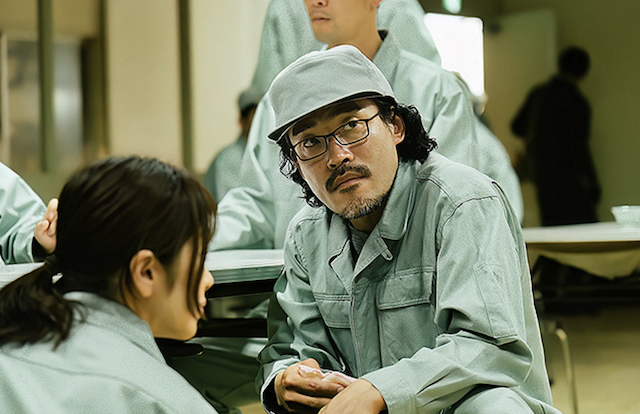
©Courtesy of Kino Films
Q : So could you talk about the casting process for the three roles, played by Tatsuya Wakaba, Yusuke Iseya, and Rio Yamashita.
Shinji Araki: For Wakaba-san, I found him in a movie called Beautiful Star, and I actually requested his input during the script writing process. I asked for his opinion about stuff. As for Iseya, he was introduced to me by a producer who was like ‘how about this person? he would be great.’ Iseya had some troubles related to drugs. I wasn’t sure, but I met him and figured that he was different than what I expected. Eventually I hired him. As for Rio’s character, I met with a lot of different actresses. There are not a ton of difficult scenes in the movie, but they are some that are a little trickier and she gets killed. And as for Jin Daeyeon, I wanted to add a few words about him too, because he actually wanted to work in Japan a little bit more, And The 4th of July. Ah yes. And I figured it would be interesting just to naturally add somebody from Korea in the end, just to reflect the reality of having diversity around us. And that’s something that I should add without making a big deal about it.
Q : You initially mentioned that you talked to the producer prior to making the film. How about other departments such as production, design, sound, and photography? Did you have conversations with each of these department to add something onto the script? Did you make any changes to the script after you talked to each department?
Shinji Araki: So I think that reflects my style a little bit, but I feel it would be boring just to talk about how I envisioned things. it, So I make sure to hire people who would not be afraid to add their own personality and use their brains if they feel that adding something would be nice, instead of just following orders.
And I like to have the last word. That’s something that I like about Japanese filming crews as well, is that [they let me have] the last word. If I don’t like something, I can reject it and ask people to change it. Or I can say yeah, that’s a great idea. And it’s accepted.
And so in the end, there was very little that was changed to the script. I want to add something about the VR machine that we see in the movie. Instead of showing this big old clunky machine I like that it was just one single needle. And when the protagonist is looking at the machine through the VR there are like so many wires and it looks like analog. That’s something that I wish I could continue with the staff, people thinking on their own and looking forward. And I think that’s really what makes art in the end. So I really had great staff and that’s something that I feel that makes a great movie.
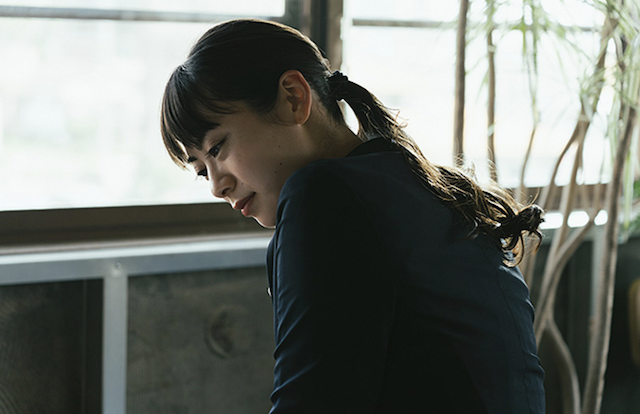
©Courtesy of Kino Films
If you liked the interview, share your thoughts below!
Check out more of Nobuhiro’s articles.
Here’s the trailer of the film.

